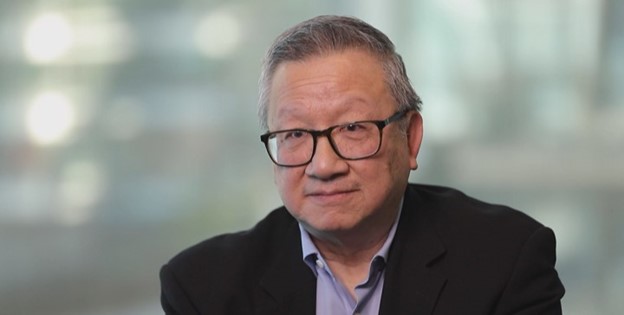
There is a sense of urgency that underlies research in rare diseases, because these diseases are often rapidly progressive. To discover and develop potential solutions requires the discipline of scientific research combined with the art and nuance of understanding the rare disease and its impact on the patient community. We spoke with head of Research and Product Development, Seng Cheng, about what creativity, serial innovation, and passion looks like in rare disease research and development (R&D).
What is your role at Alexion?
I am the head of Research and Product Development. My responsibilities are primarily to lead our teams in the ideation, research, development and delivery of investigational therapies that we hope are transformational for patients with rare diseases.
What led you to a career in research?
My interest in drug development is personal and started early, based on a curiosity that was ignited by seeing family members and friends live with congenital disorders. I grew interested in understanding the genetics behind the development of these disorders and in trying to help define and develop solutions for them.
When I went to college, it became very apparent that research and translational research, to find solutions for people with genetic diseases, were equally important. I found that I was more interested in providing a solution, rather than actually applying the solution, so I chose to focus my career in research. I needed to learn the art of scientific research to not only understand the diseases, but also to find solutions to these indications. That was the catalyst that drove my early interests in finding a way to engage in drug development.
How did you come to work in rare disease, specifically?
An important moment for me, during my journey as a research scientist, was when I met my first patient with a rare disease. The thought of helping this man gave me incredible motivation. I was able to truly appreciate the need for hope and for a solution to address the suffering and pain that he was experiencing.
I have a longstanding passion for developing solutions for patients with rare diseases and genetic diseases. I've had the privilege and honour of being involved in teams developing solutions for a number of rare diseases over a long span of my career. Coming to Alexion represents an opportunity for me to continue to do what I love. I’m able to extend my journey, interest and passion in developing more medicines for patients with the large number of rare diseases that still have unmet needs today.
What about your work excites you?
I am particularly excited about the opportunities emerging from both a greater understanding of the biology associated with a variety of different genetic diseases, as well as the emergence of new and powerful technologies that can be applied to rare disease.
Every day, patients are waiting. There's a sense of urgency. We need to bring new treatment options to patients with a high level of urgency, because so many of these diseases are progressive and, in some instances, irreversible.
What’s one thing you’ve learned and want to share from working in rare disease R&D?
Today we find ourselves at a convergence of great science and technologies. As a research scientist working in rare disease R&D, the importance of interacting with patients is paramount. We must understand the needs of patients: what impacts their daily life and their quality of life. It is critical to understand the impact of a disease on the people impacted from the very beginning as we design and engineer the paths to developing new medicines for patients.
At Alexion, we are always keen to incorporate new technologies that we believe are relevant to the programmes that we're trying to develop. We will continue to provide a leadership position through serial innovation, and efforts to develop next generation molecules to address the many rare diseases that do not currently have available treatment options.
Do you have any advice for someone considering a career in rare disease R&D?
First, having a passion for learning and understanding the diseases is a must—not only from a scientific perspective, but also from a patient perspective—to appreciate what it is that we're trying to accomplish for the patients we aim to serve.
Second, embrace creativity because we are often navigating unchartered research territory. For many of the diseases that we are contemplating, there's no precedence, so we need to be creative in how we approach designing and carrying out a research and development programme.
And third, be highly committed and move with urgency in how we bring these solutions to fruition.
Learn more about our innovative culture in our Feature Stories and explore scientific career opportunities at Alexion.com.
Veeva ID: GL/NP/0140 V1
Date of preparation: March 2024